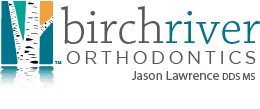
Frequently Asked Questions
If it has been a while since you had braces or you’ve never had orthodontic treatment, you might have questions. You can find answers to some of your questions below. Of course, you can also send us a note, call us, or schedule a free consultation to get answers specific to your treatment needs.
What is orthodontics?
Orthodontics is the branch of dentistry that specializes in the diagnosis, prevention, and treatment of dental and facial irregularities.
What is an orthodontist?
An orthodontist is a specialist who has completed advanced education (at least two years) following dental school to learn the special skills required to manage tooth movement and guide facial development.
What are some benefits of orthodontic treatment?
- A more attractive smile
- Reduced appearance-consciousness during critical development years
- Better function of the teeth
- Possible increase in self-confidence
- Increased ability to clean the teeth
- Improved force distribution and wear patterns of the teeth
- Better long term health of teeth and gums
- Guides permanent teeth into more favorable positions
- Reduces the risk of injury to protruded front teeth
- Aids in optimizing other dental treatment
What are some of the signs that orthodontics might be needed?
- Upper front teeth protrude excessively over the lower teeth, or are bucked
- Upper front teeth cover the majority of the lower teeth when biting together (deep bite)
- Upper front teeth are behind or inside the lower front teeth (underbite)
- The upper and lower front teeth do not touch when biting together (open bite)
- Crowded or overlapped teeth
- The center of the upper and lower teeth do not line up
- Finger or thumb sucking habits which continue after six or seven years old
- Difficulty chewing
- Teeth wearing unevenly or excessively
- The lower jaw shifts to one side or the other when biting together
- Spaces between the teeth
What is the right are for orthodontic treatment?
Orthodontic treatment can be started at any age. Many orthodontic problems are easier to correct if detected at an early age before jaw growth has slowed. The American Association of Orthodontists recommends that every child first visit an orthodontist by age 7 or earlier if a problem is detected by parents, the family dentist, or the child’s physician. Our patients range in age from 5 years old to well into their 70’s.
What is two-phase treatment?
Phase I, or early interceptive treatment, is limited orthodontic treatment (i.e. expander or partial braces) before all of the permanent teeth have erupted. Such treatment can occur between the ages of six and ten. This treatment is sometimes recommended to make more space for developing teeth, correction of crossbites, overbites, underbites, or harmful oral habits. Phase II treatment is also called comprehensive treatment because it involves full braces when all of the permanent teeth have erupted, usually between the ages of eleven and thirteen.
How do braces and aligners work?
Braces use steady, gentle pressure to gradually move teeth into their proper positions. The brackets that are placed on your teeth and the archwire that connects them are the main components. When the archwire is placed into the brackets, it tries to return to its original shape. As it does so, it applies pressure to move your teeth to their new, more ideal positions.
How long does orthodontic treatment take?
Treatment times vary on a case-by-case basis, but the average time is from one to two years. Actual treatment time can be affected by the rate of growth and severity of the correction necessary. Treatment length is also dependent upon patient compliance. Maintaining good oral hygiene and keeping regular appointments are important in keeping treatment time on schedule.
Do braces hurt?
The placement brackets on your teeth does not hurt. Once your braces are placed and connected with the archwires you may feel some soreness of your teeth for one to four days. Your lips and cheeks may need one to two weeks to get used to the braces on your teeth.
Do braces interfere with playing sports?
No. It is recommended, however, that patients protect their smiles by wearing a mouthguard when participating in any sporting activity. Mouth guards are inexpensive, comfortable, and come in a variety of colors and patterns. Ask us about the right guard for you or your child.
Do braces interfere with playing a musical instrument?
No. However, there may be an initial period of adjustment. In addition, brace covers can be provided to prevent discomfort.
Should I see my general dentist while wearing braces?
Yes, you should continue to see your general dentist every six months for cleanings and dental checkups.
